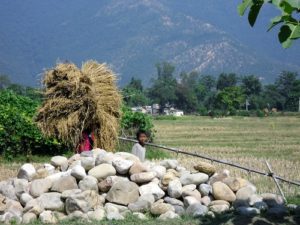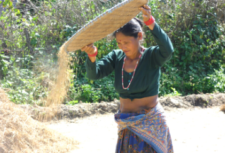Disclaimer: This article is more than 9 years old, and may not include the most up-to-date information or statistics. Please verify information with more recent sources as needed, and if you have any questions contact our Press Office.
8 April 2015
Nepal’s United Nations review: Anti-Slavery International and partners call for action on bonded labour.

Anti-Slavery International, Informal Sector Service Centre (INSEC) and Backward Society Education (BASE) have called on Nepal to tackle bonded and forced labour of adults and children.
Forced and bonded labour continues to persist in Nepal, despite government promises to ensure the system is eradicated. A recent ILO report found approximately 143,000 adults and 30,000 children still subject to forced labour. Even in communities where bonded labour has largely been addressed, discrimination against former bonded labourers and their children persists, resulting in reduced access to education and on-going cycles of exclusion and poverty.
The call has been included in the organisations’ UPR submission on Nepal 2015 ahead of Nepal’s Universal Periodic Review – a process facilitated by the United Nations whereby countries have their human rights record reviewed by Human Rights Council Member States, and recommendations are made for action. Nepal is going to be reviewed on 4 November 2015.
Our key recommendations include:
- Ensure full implementation of the 2002 Bonded Labour Prohibition Act, including identifying and releasing all bonded labourers. Ensure that all former and current bonded labourers are granted rehabilitation packages that they are entitled to.
- Finalise and place before Parliament the Haliya System (Prohibition) Bill.
- To increase deterrence, ensure that those using bonded or forced labour are prosecuted.
- Establish a national action plan for the eradication of all manifestations of bonded labour, including a permanent mechanism to monitor and co-ordinate the action of the multiple stakeholders involved: government departments, local governments, trade unions, businesses and civil society.
- Ensure minimum wages are provided.
- Tackle the root causes of bonded labour in Nepal, including by addressing issues of poverty, landlessness and discrimination against people from ‘low’ castes or ethnic minority groups. To this end, ensure effective implementation of the Caste based Discrimination and Untouchability (Offence and Punishment) Act and expand education services for children belonging to castes traditionally associated with bonded labour.
- Alter the definition of “out of school” children from those who have never attended school to those who do not regularly attend school. Monitor the distribution of education scholarships to ensure the full amount reaches children in need; and increase the scholarship amount so that all education related expenses are covered.





